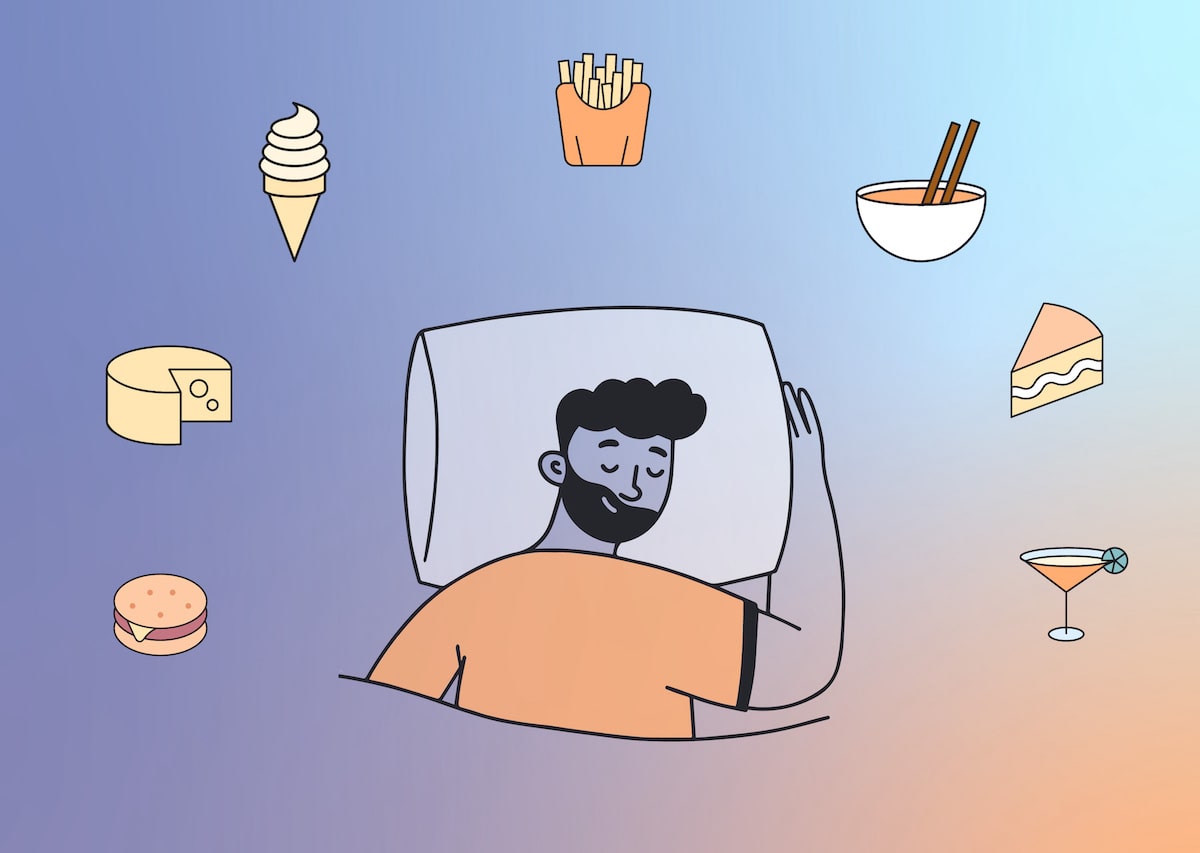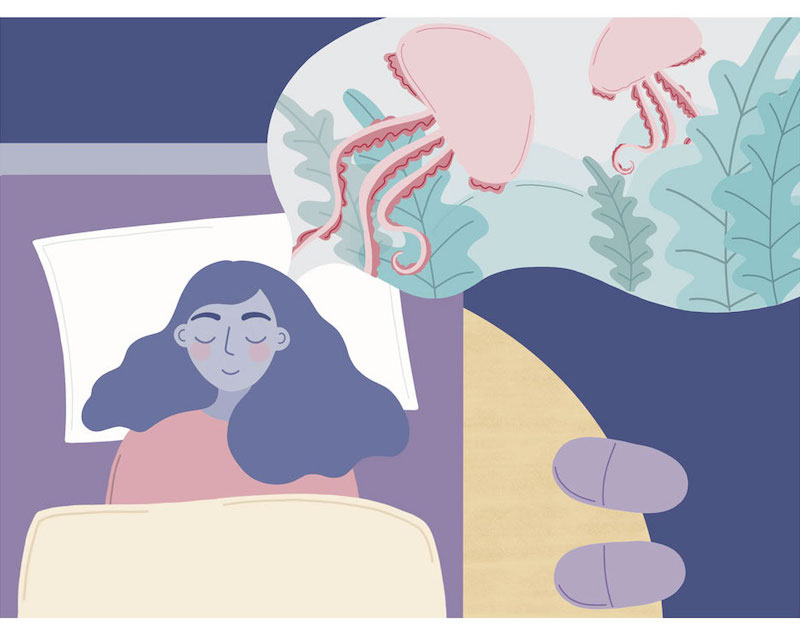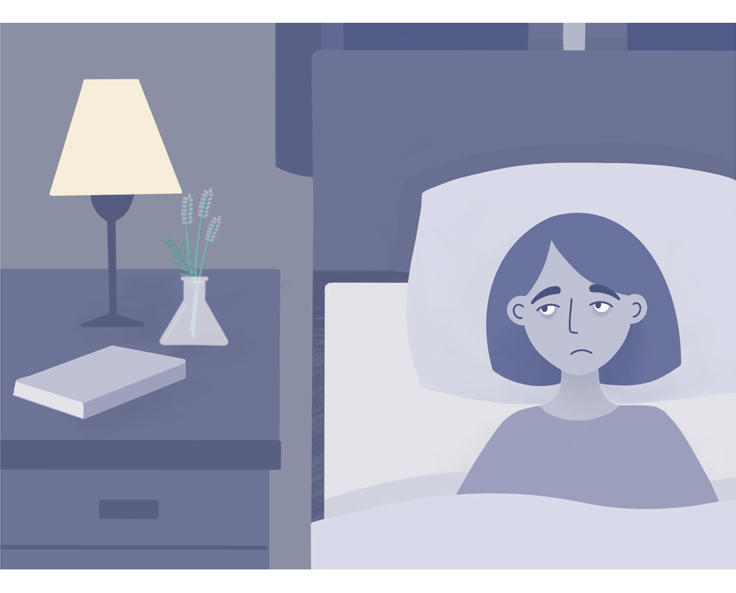Plenty of people don’t remember their dreams. But could that actually be a sign of poor health? One sleep expert claims so, while other researchers are dubious.
Below, we break down what causes dreams and why they’re important, why you might not remember your dreams, and how to start remembering your dreams if you don’t right now.
What Causes Dreams?
There are a few different psychiatric theories about what causes dreaming. Some scientists say it is how our brain trains our fight-or-flight reflex. Others say dreaming helps us form memories. But most everyone agrees that dreaming is caused by brain activity during rapid eye movement (REM) sleep. Dream research indicates that dreams are side effects of our brains working during deep sleep. If you’re curious about sleep patterns and the REM cycle check out The Complete Guide to Your Sleep Cycle.
Why are Dreams Important?
Dr. David Nazarian, M.D, who is a Diplomate of the American Board of Internal Medicine, said dreams serve a variety of purposes.
“Dreams can impact mental and spiritual health by helping to reduce stress and anxiety, improve mood, and provide a sense of emotional well-being,” Dr. Nazarian said. “They can also be a source of inspiration and creativity for some people.”

Licensed Mental Health Counselor Jessica Miller said dreams can also help people work through difficult situations. “Dreaming can heal your wound and also help you to solve your problems,” Miller said.
Why Don’t I Remember My Dreams?
If you don’t remember your dreams but are getting good sleep, you don’t have anything to worry about. If you don’t remember dreaming and feel tired during the day, or like your quality of sleep is worse than usual, you might be getting less REM sleep than you usually do, which means you’re not dreaming as much.
On the other hand, some studies found that if you wake up in the middle of REM sleep (rather than naturally later in the sleep cycle) you might remember your dreams better. So low dream recallers might actually be getting better sleep than people who remember their dreams well!
Below are a few things that can impact your REM cycle.
- Stress can keep you up at night and disrupt your sleep cycle. If you find you’re waking up often throughout the night or can’t fall asleep easily, you might be feeling stressed out. Frequent disruptions in your sleep cycle often mean you’re getting a lot of non-REM sleep, but not enough REM sleep. As a result, you might not be dreaming, or remembering, your dreams. If your stress causes sleep problems for more than a few days, you may want to talk to your healthcare provider.
- Your diet can also affect your dream recall. While there is no scientific evidence that your diet can affect your dreams, people often blame nightmares or vivid dreams on what they ate before bed. What research does show is that nutrition impacts sleep. A healthy diet can help you get better sleep, which in turn might make it easier to get more REM sleep and dream more often.
- Medications that affect the central nervous system can impact your sleep cycle. Things like antiseizure drugs and antidepressants can all impact your sleep. Additionally, alcohol can negatively impact your sleep, and you’ll likely feel tired and cranky if you drink too much before bed.
- Sleep Disorders can also impact your REM cycle and dream recall. In fact, we recommend seeking medical advice if you’re experiencing noticeable sleep deprivation for more than a few days. It may indicate underlying health issues like sleep apnea or narcolepsy. Getting treatment can help reduce nighttime awakenings and make you feel more rested during the day.
Unintentionally Ignoring Dreams
Sometimes we unintentionally ignore our dreams. For instance, many people think they don’t remember their dreams, but after starting a dream journal in the morning they find they remember a lot more than they thought. Our dreams aren’t important in our day-to-day lives, so if you don’t write them down or talk about them shortly after waking up you’re likely to forget them.

I Used to Remember My Dreams, Now I Don’t – Why Is That?
If you used to remember your dreams and don’t anymore, you might be experiencing changes in your sleep. If you feel rested and are otherwise healthy, this is nothing to worry about. If you feel sleep deprived or are dealing with an underlying health condition, you might want to consult with your doctor. If you’re sleeping fine but want some tips on remembering your dreams, check out the solutions below.
How to Remember Dreams
So, how can you remember your dreams? There are a few different solutions. For an easy fix, try taking vitamin B6! Studies have illustrated how Vitamin B6 can help you remember dreams. If you’re looking for a more surefire solution, consider the options below.
Keep a Consistent Sleep Schedule
A consistent sleep schedule can ensure you cycle through all the different stages of sleep, including REM sleep. This will help you have more dreams to remember. If you struggle with going to bed and waking up at the same time every day, check out our 5 Ways to Fix Your Sleep Schedule guide.
Drink Water Before Bed
Waking up in the middle of the night (aka during REM sleep) can help you remember your dreams if you don’t remember them naturally in the morning. To induce a night time wakeup, drink at least three glasses of water before bed. This should wake you up to visit the restroom in the middle of the night, hopefully in the middle of a dream, which you should be able to remember more vividly. While this might be a useful trick if you really want to remember a dream, we don’t recommend using it frequently. It’s important for your mental and physical health to get good sleep each night.
Avoid Alcohol and Drugs Before Bed
Alcohol and drugs can impact your sleep cycles and suppress dreams. Going to bed sober makes it more likely that you’ll complete the entire sleep cycle and have dreams to remember. Check out our How Alcohol Impacts Sleep guide to learn more about how drinking can affect dreams.

Wake Up Naturally and Slowly
Waking up naturally and slowly, rather than jolting awake when the alarm clock rings, can help you remember your dreams. The longer you stay in a groggy half-asleep state, the more likely you are to remember your dreams. An alarm-clock-induced jolt of adrenaline will banish dreams from your mind. Can’t wake up without an alarm? Check out our How to Become a Morning Person guide.
Keep a Dream Journal at Your Bedside
Often, we don’t remember our dreams because we’re not paying attention in the morning. Keeping a dream journal by your bed and using it as soon as you wake up can help you remember your dreams throughout the day. We highly recommend trying this first, especially if you’ve never tried recalling your dreams before!
FAQs
Check out our FAQ section to learn more about dreams.
Do you dream every night even if you don’t remember?
If you cycle through all the sleep stages you will dream every night, even if you don’t remember your dreams in the morning. If you are having trouble sleeping or wake up frequently at night, you may not be getting REM sleep, which is needed for dreaming.
How many people remember their dreams?
About 80% of people remember their dreams at least once or twice a week.
If you remember your dreams, is it a message?
It might be! We process our memories and thoughts in our dreams, and if you dream about the same thing often, you might be thinking about it frequently. So, a dream can be like your subconscious sending you a message. Need help interpreting? Find out what these common dreams may be telling you.